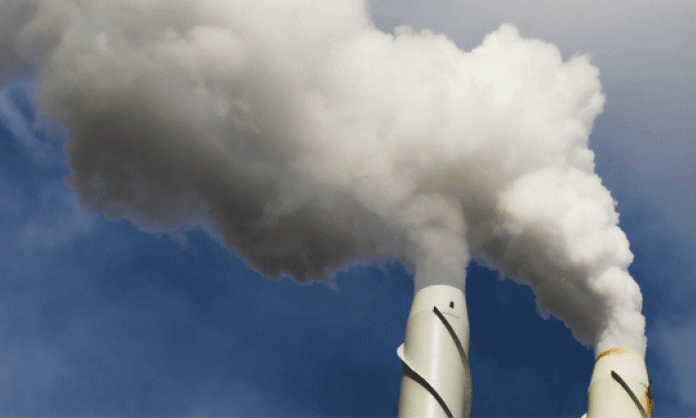The latest climate research shows that carbon emissions continue to rise at a frightening rate. The Global Carbon Project reported on 21 September that carbon dioxide emissions from fossil fuel combustion and cement production increased by 2.3 percent in the last year – the highest level of emissions in human history.
The World Meteorological Organization’s Greenhouse Gas Bulletin reports record concentrations of CO2 in the atmosphere, and the highest annual increase in concentrations since 1984. The WMO report also details an “unprecedented” rate of ocean acidification, as the world’s oceans absorb more than a quarter of all carbon emissions.
These levels of emissions, if they continue, leave the planet, its ecosystems and human populations with a grim future. As the average global temperature increases, there will be more extreme and unpredictable weather events, reduced biodiversity and uncertain prospects for food production. Small island states – especially the atoll island nations of the Pacific and Indian oceans – face “partial or virtually total inundation” from rises in sea levels, according to the Intergovernmental Panel on Climate Change (IPCC).
In the face of this crisis, world leaders are paralysed by their allegiance to the profit system. The UN climate summit in New York on 23 September, like previous UN summits, produced a deluge of bluster and rhetoric with no binding agreements to cut emissions. Faced with a choice of protecting people or profit, governments time and time again favour the interests of energy giants, industrialists and resource corporations.
Graça Machel, widow of Nelson Mandela, addressed the summit with damning remarks. “There is a huge mismatch between the magnitude of the challenge and the response we heard here today”, she said. “The scale is much more than we have achieved.”
Proponents of the status quo like to tell us that climate change is a “very complex issue” that workers, the poor and the disenfranchised couldn’t possibly understand, let alone make rational decisions about. Even those establishment figures who admit that global warming is a problem cling to profit-generating fossil fuels as a source of energy, advocating delusional non-solutions like “clean coal”.
Beyond Zero Emissions (BZE), an Australian-based climate think tank, shows, in a series of plans for stationary energy, transport, agriculture and building design, that the technology to meet energy requirements solely with renewables already exists. Wind turbines and small- and large-scale solar storage technology could supply Australia with reliable, 24-hour energy.
We do not need to choose between jobs and the environment. Transitioning to a zero-emissions economy would create jobs, not destroy them. The kind of change that BZE proposes would need engineers, labourers, town planners, architects, social scientists, trainers, and dozens of other types of skilled and unskilled workers to implement. Skilling-up and retraining people to perform these jobs would require expansion of university and TAFE courses as well.
The problem isn’t the technical viability of renewable energy technology, nor is it the social aspects of transforming the economy. Rather, the barrier to a zero-emissions economy is capitalism’s drive for profit.
In 2008, economist Nicholas Stern, author of the 2006 Stern Review, estimated that an investment of 2 percent of global GDP per year could stabilise atmospheric carbon concentrations at 500 to 550 parts per million. Two percent of GDP seems like a tiny sacrifice in the face of the catastrophic consequences of inaction. But as we see in successive world climate summits, profit overrides rationality.
The US government consistently refuses to commit to even the most minimal of binding emission reduction targets, arguing that reductions should be “voluntary”. This, of course, means they simply won’t happen. The Australian government’s attitude is even worse. Any administration knows that its primary task is ensuring the steady flow of profits of the corporations it serves – especially the powerful energy giants.
The IPCC estimates that 80 percent of the world’s fossil fuel reserves must remain in the ground if we are to have any chance of avoiding a rise of more than 2°C in average global temperatures. Following through with this would write off $US 20 trillion in assets of the world’s largest corporations.
The energy giants have no intention of leaving fossil fuels where they belong. In March, ExxonMobil reported to shareholders that it intends to use all of its current hydrocarbon reserves and more, and predicted that carbon-based fuels would continue to meet about three-quarters of global energy needs through 2040. In May, Shell told investors that it expects high energy prices, and reaffirmed the market value of its own hydrocarbon reserves.
With governments firmly on the side of these profiteers, summits and global talks are simply forums for blame-shifting, delaying tactics and public relations. We need to reject the profit system and look outside it for ways to deal with climate change.










